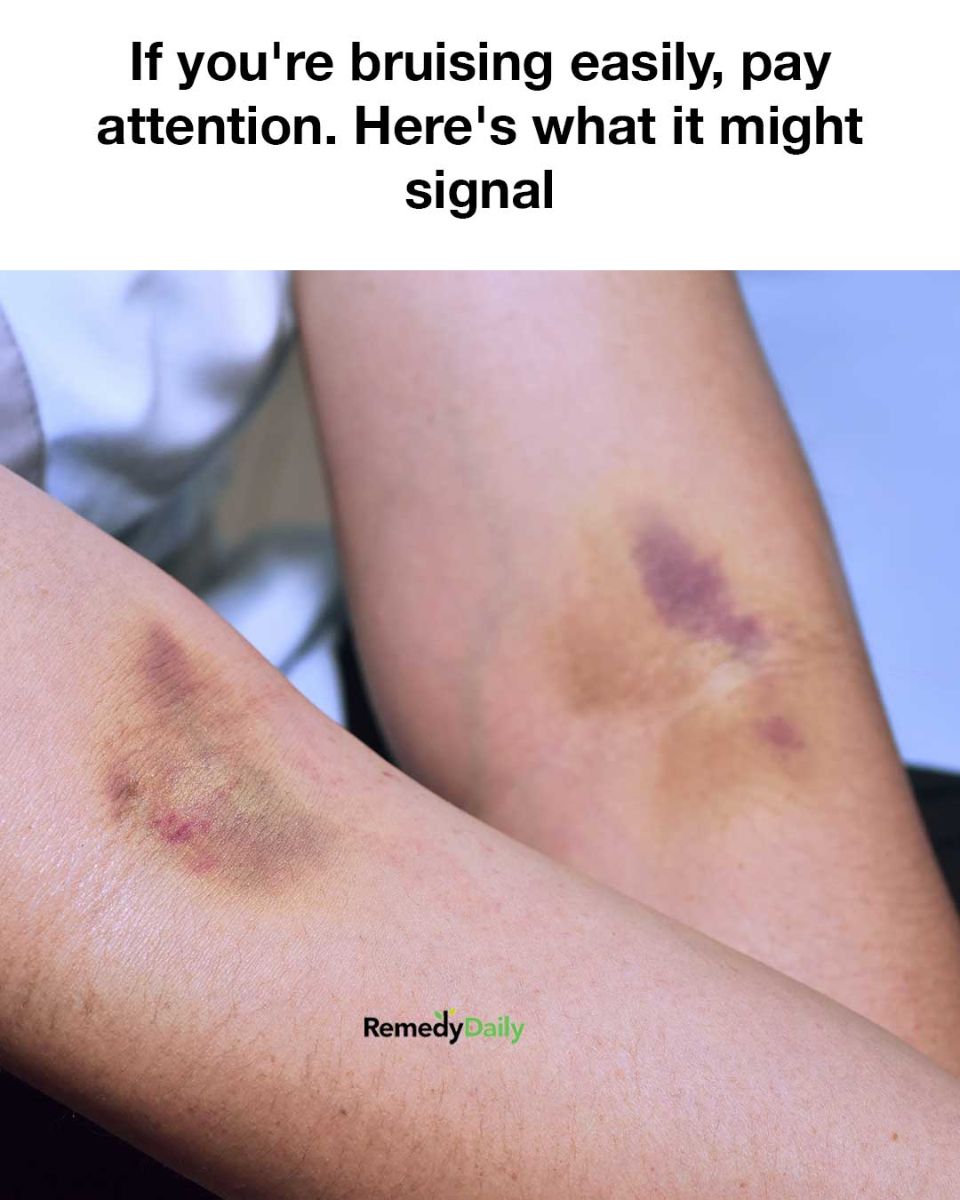ADVERTISEMENT
Several factors can contribute to easy bruising. One of the most common causes is the fragility of blood vessels, which can be hereditary or develop over time. People with fair skin may also notice bruises more easily than those with darker skin tones.
Other common causes include minor injuries that go unnoticed, such as bumping into furniture or engaging in physical activities. Certain medical conditions, such as liver disease or blood disorders, can also increase the likelihood of bruising. Additionally, lifestyle factors like alcohol consumption and smoking can weaken blood vessels, making them more prone to damage.
- Vitamin Deficiencies and Their Impact
Vitamin deficiencies, particularly of vitamin C and vitamin K, can significantly impact the body’s ability to heal and maintain healthy blood vessels. Vitamin C is essential for collagen production, which helps strengthen blood vessel walls. A deficiency can lead to weakened vessels and increased bruising.
Vitamin K plays a crucial role in blood clotting. Without adequate vitamin K, the body may struggle to stop bleeding, leading to more pronounced and frequent bruising. Ensuring a balanced diet rich in these vitamins can help reduce the risk of easy bruising. - The Role of Aging in Bruising
As we age, our skin becomes thinner and loses some of its protective fatty layer, making blood vessels more susceptible to injury. This natural aging process can lead to increased bruising, even from minor bumps or falls.
Additionally, the production of collagen decreases with age, further weakening the structural integrity of blood vessels. Older adults may notice that bruises take longer to heal, as the body’s regenerative processes slow down over time. - Medications That May Increase Bruising
Certain medications can increase the likelihood of bruising by affecting blood clotting or weakening blood vessels. Common culprits include blood thinners like aspirin and warfarin, which are prescribed to prevent blood clots but can also lead to easier bruising.
Other medications, such as corticosteroids and nonsteroidal anti-inflammatory drugs (NSAIDs), can also contribute to bruising by affecting the skin and blood vessels. If you notice increased bruising after starting a new medication, it is important to discuss this with your healthcare provider. - When to Worry: Signs of Underlying Conditions
While occasional bruising is usually harmless, certain signs may indicate an underlying medical condition. If you notice large, painful bruises that appear without any known cause, or if bruises are accompanied by other symptoms like bleeding gums or frequent nosebleeds, it may be time to seek medical advice.
Conditions such as hemophilia, leukemia, or other blood disorders can cause excessive bruising and require prompt medical attention. A healthcare professional can conduct tests to determine the cause and recommend appropriate treatment. - Viral Hacks for Reducing Bruising
see next page 💕👇
ADVERTISEMENT
